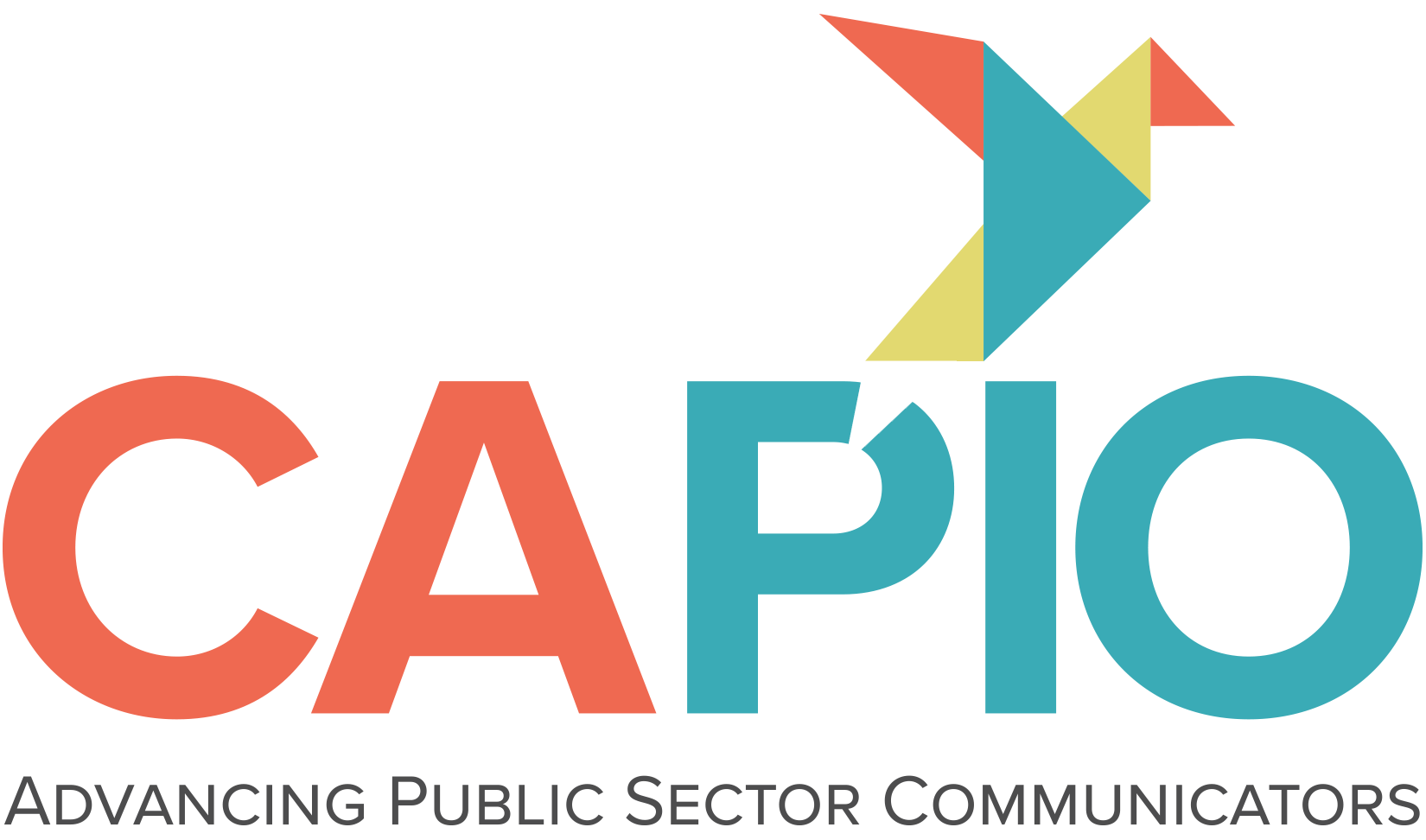April was APR Month, but what is the APR?
April was not only the month of our annual CAPIO Conference, but it was also APR month – recognizing that not everyone can do what we do as government communicators. You may have seen our social media posts or heard the buzz about CAPIO now offering the APR, but what is it?
In the world of communication professionals, the Accreditation in Public Relations (APR) is the gold-standard in credentials earned by practitioners who commit to the profession through ethical practices and sound judgement, strategic perspectives, knowledge of best practices and the use of the research-planning-implementation-evaluation (RPIE) process.
Unlike other professions (e.g., physicians and attorneys), the field of public relations does not require licensure or certification to practice our craft. But it does require expertise, knowledge and training to be a successful and strategic communications professional and counselor. The decision to pursue the APR is both personal and professional.
So why should your company or organization care if you have earned your APR?
“Having “APR” after my name is a testament to my professional expertise, ethics and dedication in the profession,” said Rachel McGuire, APR, CAPIO education and development chair and communications manager at Western Municipal Water District. “I also credit the APR process with solidifying my role as a communications strategist and leader in my organization and field.”
Accreditation is a mark of distinction. The APR is earned through a rigorous process. Practitioners are required to present their knowledge during a panel interview to peers who have their APR. This panel interview is followed by a comprehensive examination that tests candidate’s knowledge of the field. Perhaps most importantly, the APR signifies an understanding and commitment to a code of ethics and ability to think and plan at a strategic level.
In today’s business climate, it is critical that an organization’s communications and public relations function adheres to ethics. The complexities associated with technology, societal change and instantaneous news make ethics more important than ever as the profession matures.
In fact, a recent study completed by faculty at Baylor University showed that practitioners with an APR possess more confidence in providing ethical counsel to senior leadership than their non-accredited peers. In the current fast-paced and ever-changing business world, a solid understanding of ethics is critical to an organization’s success.
Communications and public relations has moved far beyond the stereotypical spin doctor and press agents of the 20th century. Today’s communications practitioners play a vital role in reputation management, crisis communications and issues management. A seasoned pro operates at the strategic level, focusing on target audiences and measured results, not just glitzy media coverage and guerilla-style publicity stunts.
“Our profession is so much more than putting together a flashy brochure and considering it a success,” said Liselle Degrave, APR, owner of DeGrave Communications. “It’s showing that we understand the holistic, strategic communication process with strong ethics at the core of everything we do.”
How do companies and organizations – especially those in government – know they are hiring the right person? The APR credential signifies that a professional possesses the competence necessary to operate at a strategic and ethical level in an increasingly complex communications world. Hiring managers and organizations who choose professionals with APRs know that they have chosen competent individuals committed to providing strategic and insightful counsel.
CAPIO is now one of only nine organizations to administer the internationally recognized APR. To learn more about the APR, visit CAPIO’s APR web page.

Comments
Post new comment